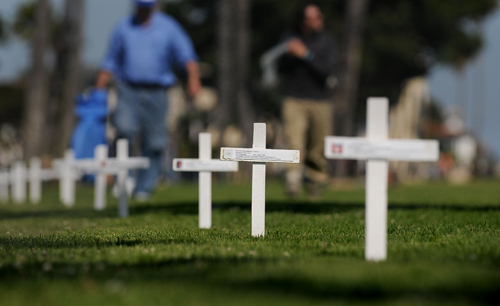Tags
business, Craving for stuff, Environmental pollution, Foreclosures, Global Financial Crisis, Middle class Americans, Non-renewable mineral resources, Self Storage Association (SSA), Self storage industry, Storage auctions
Self Storage Building in Compton, Southern California
Source: http://www.selfstorages.com
In Los Angeles, when you drive through middle class residential areas in the early morning and evening, you will notice that cars line both sides of the street. Although many families have more than one vehicle, not all of them use their garage for its intended purpose. The garage, for lots of people, is an area for storing stuff.
Problems arise when the stuff accumulated can no longer fit in the garage. While some take the time to organize their stuff and donate or dispose of it through yard or garage sales, others opt to rent one or more self-storage units. Until recently, a close relative stored her collection of collectible dolls and action figures in such a unit. Another relative, forced to downsize her home, now keeps her excess furniture and household articles in self storage.
According to the American Self Storage Association (SSA), the industry grossed over $20 billion in 2011. Based on the industry’s performance since the economic recession of September 2008, Wall Street analysts consider the business “recession resistant” (www.selfstorage.org). Moreover, there is a growing lucrative business in auctioning off the contents of self storage units for non-payment of monthly fees (www.storageauctions.com).
Considering that millions of Americans have lost their homes to foreclosure since the global financial crisis, there is also an increased demand for storage space as homeless families find shelter with relatives and friends and put their belongings in storage. Moreover, while we continue to crave more stuff than we have room for, the self storage industry will continue to be a lucrative business enterprise.
All this unused, excessive stuff that we store in our garages and rental storage units comes with a big price tag. The production of consumer goods contributes to the depletion of Earth’s non-renewable mineral resources. Then, when we dispose of our non-perishable and toxic junk, we contribute to the pollution of our natural environment. News about the cumulative effects of man’s activities on our planet grows more somber with each new day.
Can we maintain our high consumption rate without detrimental consequences for our own well-being and those of our children and grandchildren?




